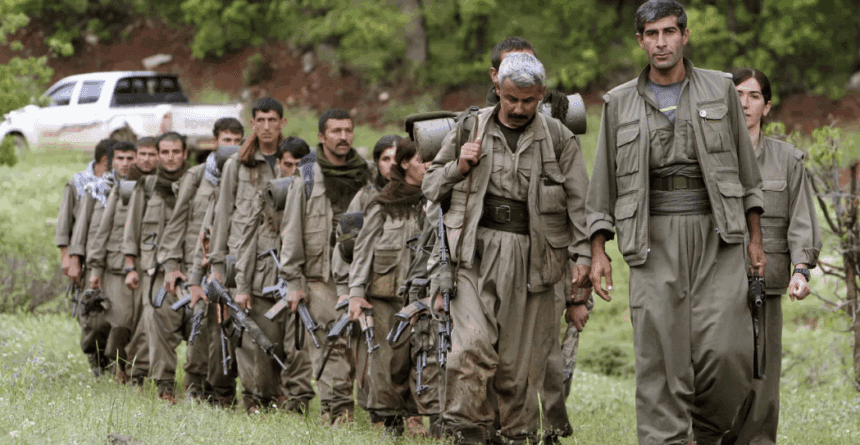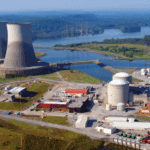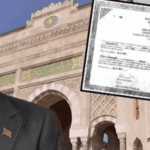After four decades of conflict, a historic opportunity for peace between Turkey and the outlawed Kurdistan Workers’ Party (PKK) is taking shape — but signs are emerging that not everyone wants it to succeed.
The PKK announced the end of its armed struggle in May, and plans are now underway for a symbolic disarmament ceremony to take place in the coming days in Sulaimaniyah, northern Iraq. The event, to be held publicly and broadcast live by regional and national media, will feature the destruction of weapons whose serial numbers will be recorded under the supervision of an NGO — a rare act of transparency in the region’s history of insurgency and counterinsurgency. After the ceremony, the fighters are expected to return—unarmed—to their base areas. This signals that the process may go beyond mere symbolism and represent a genuine step toward demilitarization.
At the heart of the process is an anticipated video message from PKK founder Abdullah Öcalan, imprisoned on İmralı Island since 1999. His endorsement is seen as critical not only for the PKK but also for rekindling the political legitimacy of a broader Turkish-Kurdish peace process — one that collapsed violently in 2015.
But while gestures of peace are emerging publicly, the situation on the ground is growing increasingly volatile.
Between June 24 and 26, a drone attack allegedly carried out by PKK fighters targeted the Turkish military’s 5th Commando Battalion, wounding 10 soldiers, including two officers and a non-commissioned officer. Former AK Party MP Şamil Tayyar confirmed the attack, criticized the Ministry of National Defense for its silence, and pointedly noted that the attackers were believed to be affiliated with the PKK.
Shortly afterward, HPG, the PKK’s armed wing, claimed responsibility — but framed the strike as a retaliatory response to alleged chemical attacks by Turkish forces on PKK positions near Amediye and Metina. HPG accused Turkish units of attempting to annihilate underground guerrilla forces using internationally banned munitions, stating that the peace process itself was under assault by “certain commanders chasing personal ambition and cheap heroism.”
What is emerging is a worrying pattern: peace overtures on one track, and sabotage — both political and military — on another.
Some of the sabotage may be coming from within the Turkish state. Ultra-nationalist factions, elements within the security establishment, and political actors who view Kurdish empowerment as a long-term threat may see disarmament as a betrayal, not a solution.
Hardliners exist not just in Ankara’s security establishment, but within the PKK itself. Over the years, internal divisions have emerged between military field commanders, ideological purists, and political pragmatists. While Öcalan’s faction appears committed to transition and dialogue, not all PKK cadres may agree. For those who have built careers, loyalty, or power around a permanent state of conflict, peace may threaten more than ideology — it threatens relevance.
Foreign actors also have reasons to resist peace.
A peaceful resolution between Ankara and the PKK could undermine Iran’s regional leverage, especially through its support of PJAK, the PKK’s Iranian affiliate. It could weaken the role of the Syrian Democratic Forces (SDF) — dominated by the YPG, the PKK’s Syrian wing — as a Western-backed buffer force in Syria. It might also reduce the rationale for foreign military presence in Iraq’s Kurdish region, particularly in areas like Sulaimaniyah, where rival Kurdish parties and foreign intelligence networks intersect.
Some analysts believe that foreign intelligence services — including those of Iran, Russia, and even Israel—may prefer a managed instability between Turkey and the PKK, which keeps both sides dependent, distracted, and regionally contained. In this light, weapons deliveries, cross-border troop movements, or targeted leaks can serve as subtle tools to disrupt any momentum toward reconciliation.
Indeed, opposition leader Ümit Özdağ recently raised questions about the broader picture: Does Turkey possess a complete inventory of PKK arms? What about the sophisticated weapons used by the YPG in Syria, or troop transfers from Syria to PJAK in Iran in recent weeks? If these weapons are not part of the disarmament process, what confidence can be placed in its comprehensiveness?
All this casts a long shadow over the planned ceremony in Sulaimaniyah, reportedly scheduled between July 9 and 11.
The 2015 collapse of peace talks between Ankara and the PKK was a devastating blow that ushered in years of urban warfare, mass arrests, and political repression. If this fragile moment is lost again — whether to rogue actors, chemical attacks, drone strikes, or strategic interference by outside powers — it may take another generation before such an opportunity returns.
The question is not whether peace is possible, but whether all actors — state, non-state, domestic, and foreign — are willing to allow it to succeed.
By: News About Turkey (NAT)



